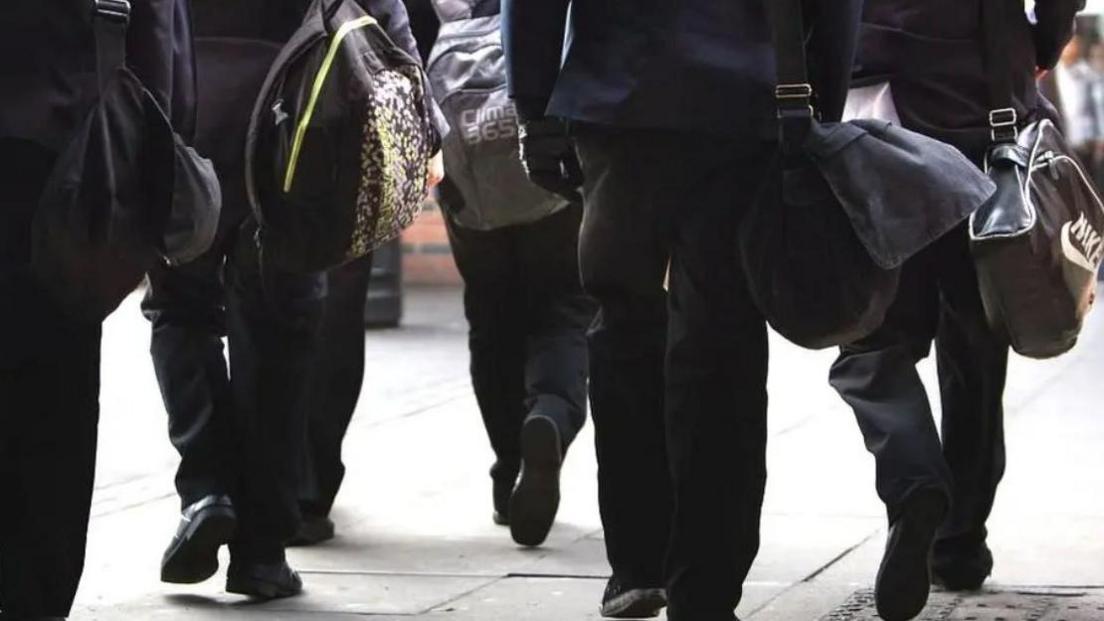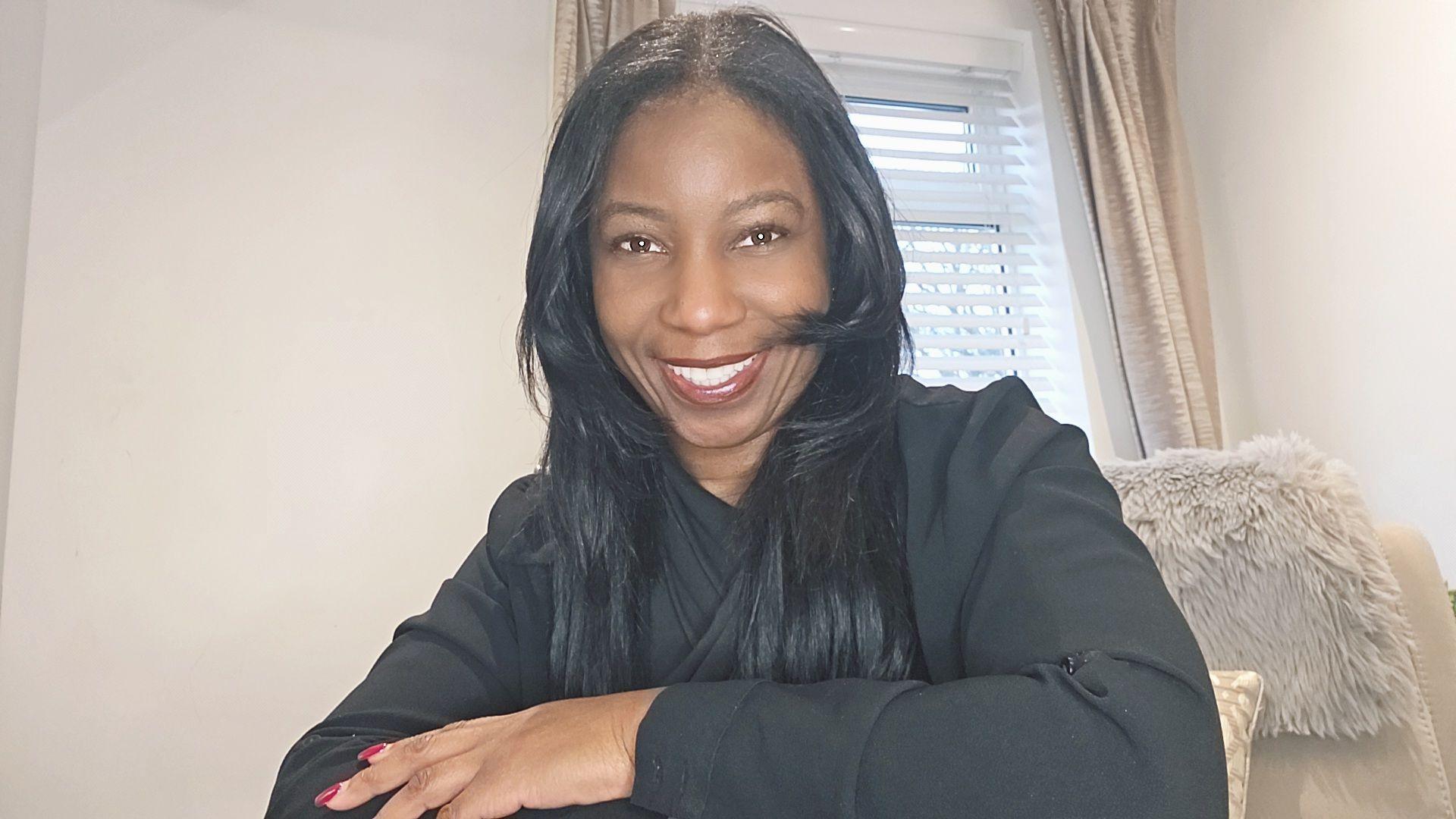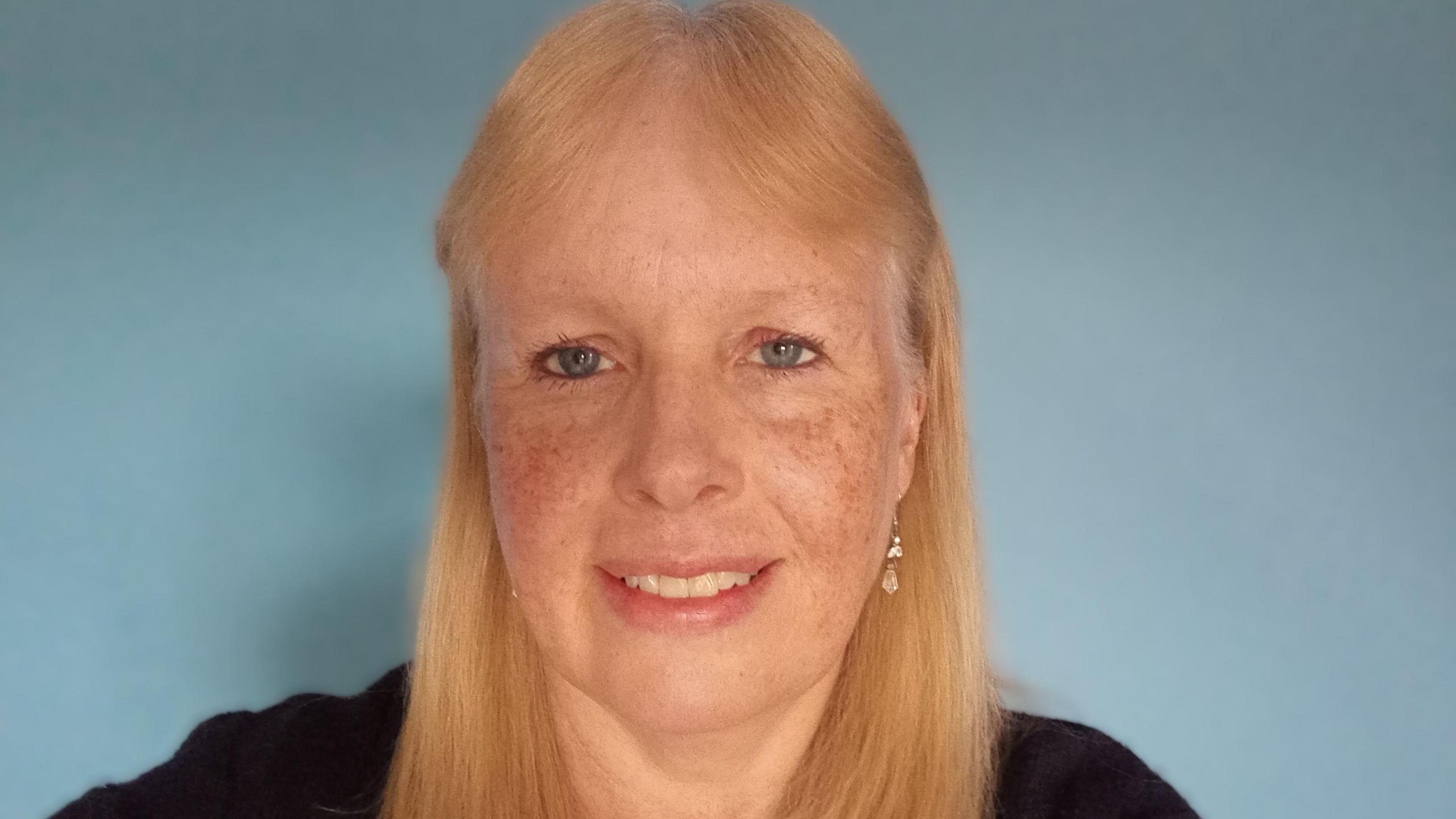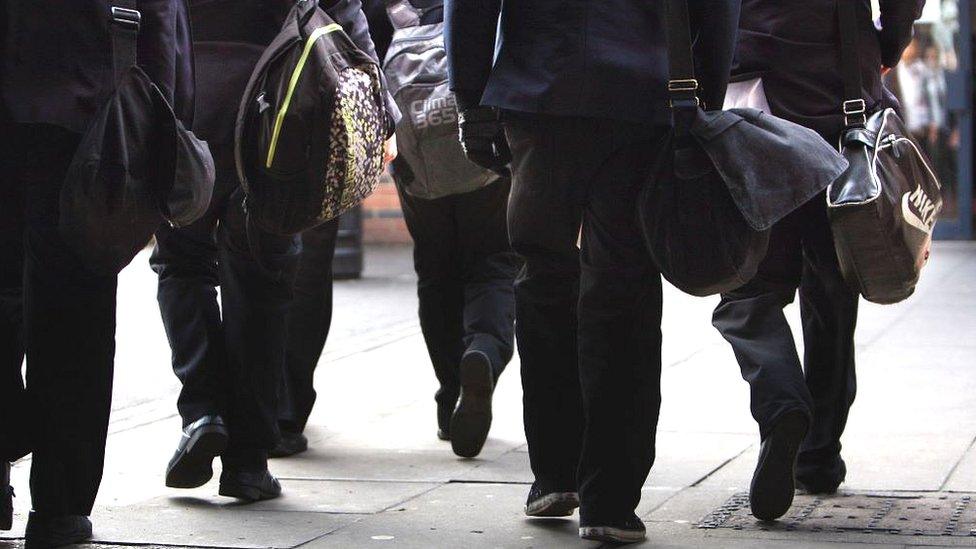Thousands paid in compensation for school assaults

The latest government figures suggest a rise in pupil suspensions for assaults on adults
- Published
Councils in the South East have paid out tens of thousands of pounds in compensation to staff who have been injured during school violence, a BBC investigation can reveal.
Between 2019/20 and 2023/24, local authorities paid damages of £64,555 for cases linked to assaults on teachers or teaching assistants.
It comes as the latest government figures suggest a rise in pupil suspensions for assaults on adults.
The Department for Education (DfE) said nobody should face violence or abuse in the workplace, "including our incredible school staff who are vital to improving life chances for all children".
BBC South East asked all councils in the region to reveal the level of damages paid out to school staff who had been injured during assaults at school over a five-year period.
Kent County Council (KCC) paid £25,000 to a member of staff who had been injured by a student assaulting them.
Surrey County Council (SCC) paid £10,375 to school workers who sustained injury caused by a pupil assaulting them
East Sussex County Council (ESCC) paid £22,000 to staff for breaking up fights between pupils.
Medway Council paid £7,180 for the same reason.
One former teaching assistant previously told BBC South East how she quit the profession after being hit, kicked, bitten and sworn at by pupils.
The latest DfE figures show there were 1,997 suspensions across Kent, Surrey and Sussex during the autumn term 2023/24 for physical assault against an adult in school - up from 1,470 during the same term in 2022/23, a 35% increase.

NASUWT general secretary Dr Patrick Roach said levels of violence nationally had increased since the pandemic
Teaching union NASUWT said the increase in the number of pupils being suspended for assaulting school staff reflected feedback from their members that levels of violence and abuse from pupils had increased since the pandemic.
"These figures represent the tip of the iceberg, as we know that in too many cases schools fail to deal effectively with serious assaults and attacks on teachers," said Dr Patrick Roach, NASUWT general secretary.
"Schools too need to respond to the increase in violent and disruptive behaviour by ensuring there are effective behaviour management policies in place to deal with and deter acts of violence and abuse and that sanctions are clearly and consistently enforced."
Meanwhile, a poll published last month by the National Association of Head Teachers (NAHT) of more than 1,600 of its members, found 82% had been abused by parents in the past year.
The survey said 10% had suffered physical violence.

Marie Gentles is a behaviour adviser to the Department for Education
Marie Gentles, an education consultant and behaviour adviser, said: "I think most teachers and school staff would be able to pinpoint the increase in suspensions since Covid.
"We have a bigger number of dysregulated children and dysregulated adults trying to support the children.
"We need to be more preventative than reactive by understanding the reasons behind the behaviours.
"I do think some of it is linked to unmet need around special educational needs and mental health," added the former headteacher.
The founder of Oasis Community Learning, an academies trust which runs a number of schools across the country, said there needed to be more investment in children's mental health.
Rev Steve Chalke said: "An investment in the social emotional and mental health of our children is one that will pay for itself time after time.
"A child that grows up socially, emotionally and mentally healthy will be one that contributes to society throughout their lives. A child who is not invested in will be a cost to society throughout their lifetime."
A spokesperson for ESCC said that schools in academies in East Sussex "work hard to support young people to be successful at school".
"Any decision to suspend or exclude a child will be taken by the school's headteacher, according to the school's behaviour policy," they added.
A KCC spokesperson said: "We support senior school leaders to take the decisions needed to keep staff, pupils and communities safe, while supporting the youngster to still receive the education they are entitled to."
An SCC spokesperson said: "We are taking a number of steps to support schools in this area, including by strengthening transition support for children at risk of exclusion, offering mentoring support for children in secondary school who are at risk of exclusion, and providing funding to schools to commission activities to reduce exclusions. "
'Breaking down barriers'
A DfE spokesperson said: "As part of our Plan for Change, we are committed to turning the tide on poor behaviour, breaking down barriers to opportunity and ensuring every child can achieve and thrive.
"Our new regional improvement teams will work with schools to spread the highest standards of behaviour across our classrooms, and we are committed to providing access to a specialist mental health professional in every school.
But we know there is more to do and are looking closely at how we can go further to support teachers and drive-up standards for all our children."
Follow BBC Kent on Facebook, external, on X, external, and on Instagram, external. Send your story ideas to southeasttoday@bbc.co.uk, external or WhatsApp us on 08081 002250.
Related topics
Related stories
- Published23 July 2024

- Published28 March 2024

- Published20 February 2024
